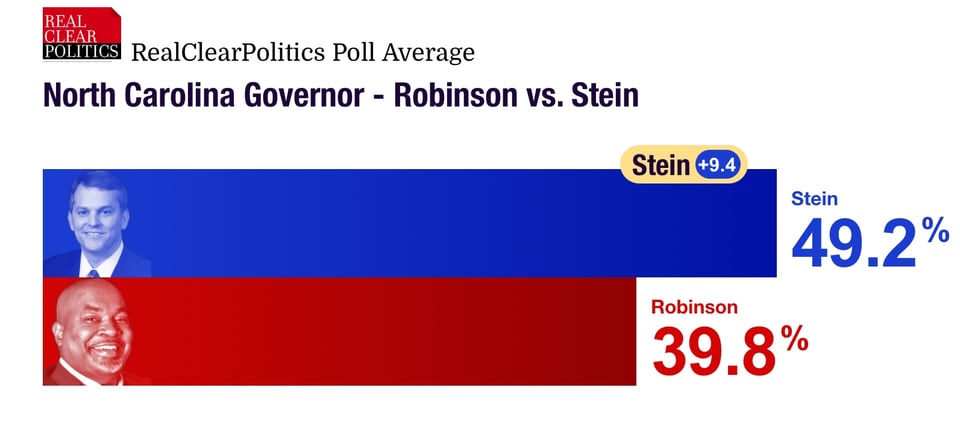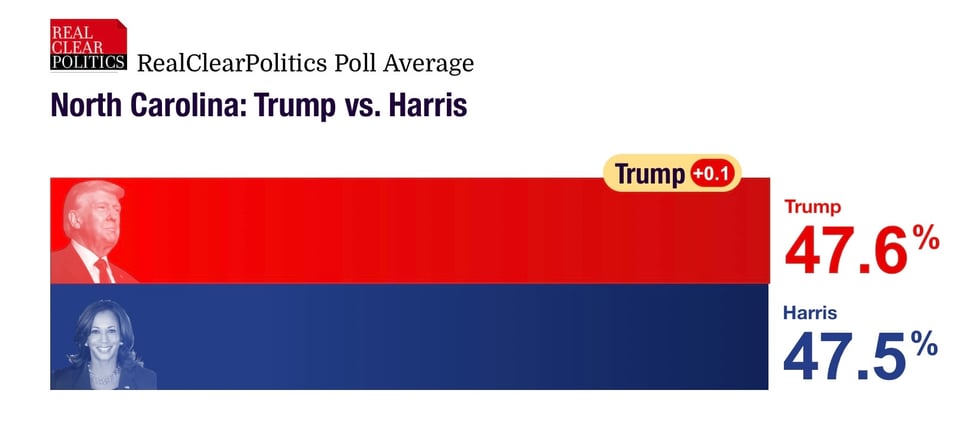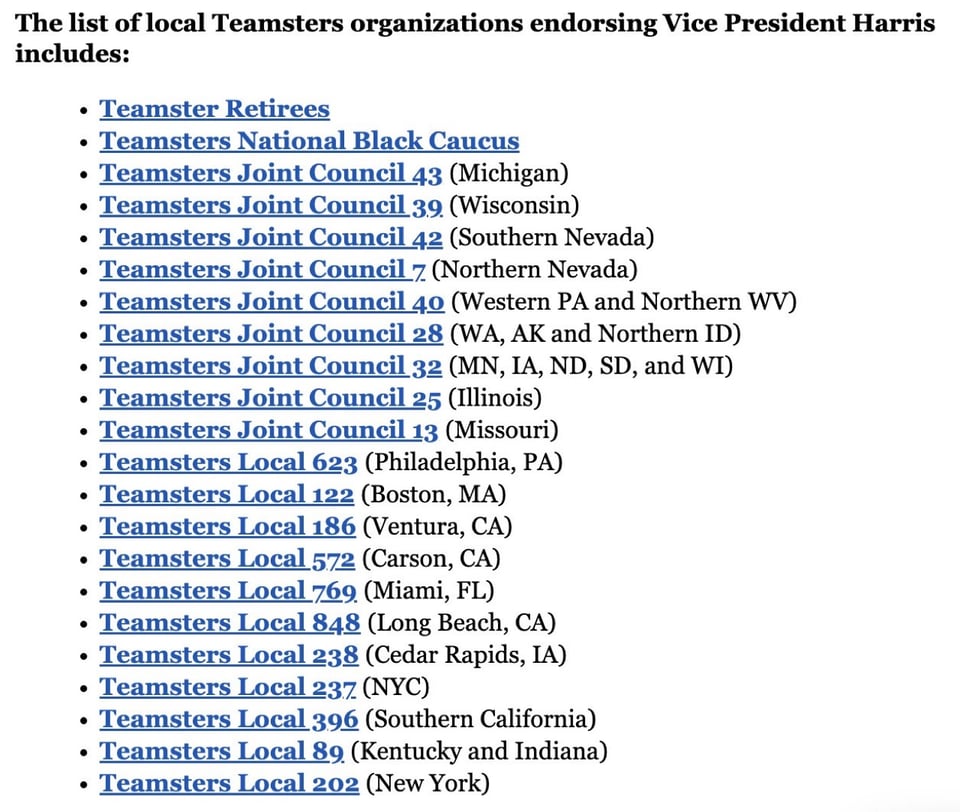Friday, September 20, 2024. Billie Jean King Day. Annette’s News Roundup.
If you care about what happens in this election, don’t sweat the polls — go vote.
(From the sometimes wise, but sometimes not wise Nate Silver, pollster. This time he is wise!)
If you care about what happens in this election, don’t sweat the polls — do something.
Work. Volunteer. Talk up your excitement for Kamala and other candidates. And give money
(From us all who heard the always wise Michelle Obama).
Did you watch the Unite for America Rally with Vice President Kamala Harris and Oprah Whitney?
It was live streamed from Michigan.
293,000 people were watching.
In his closing statement at last week’s presidential debate, Donald Trump made a blink-and-you-miss-it comment that earned a pointed response from the German government.
by Dan Gearino.

“You believe in things like we’re not going to frack, we’re not going to take fossil fuel, we’re not going to do things that are going to make this country strong, whether you like it or not,” he said to his opponent, Vice President Kamala Harris. “Germany tried that and within one year they were back to building normal energy plants.”
For German audiences or anyone who has followed Germany’s decades-long push to move away from fossil fuels and nuclear power, Trump’s comments made little sense.
They also showed the peculiar place Germany holds in global energy discourse, as an example that can be used to argue for or against just about anything. Germany has had enough successes and failures that one observer can say, for example, that the country has been a model for deploying renewable energy, while someone else could focus on how some of the same policies have provoked public backlash.
Germany’s Federal Foreign Office issued a statement responding to Trump on Sept. 11.
“Like it or not: Germany’s energy system is fully operational, with more than 50% renewables,” the office said on X. “And we are shutting down—not building—coal & nuclear plants. Coal will be off the grid by 2038 at the latest. PS: We also don’t eat cats and dogs.”
(That last part was a winking reference to Trump’s unfounded comments about Springfield, Ohio, residents.)
I’ll note that the office’s post has an error. While it refers to the energy system, the statistics it cites are for the electricity system, which is a subset of the energy system.
Richard Grenell, the U.S. ambassador to Germany during Trump’s presidency, responded to the office’s comments with an apparent threat.
“The blatant election interference from the German government is worse than the Russian and Iranian interference,” he said on X. “We see this clearly and will react accordingly.”
Anna Lührmann, Germany’s minister of state for Europe and climate, also offered an opinion: “Contradiction with facts and humor—that is the right answer to disinformation.”
In 2020, I wrote a series of stories about Germany’s energy transition. To prepare for my reporting there, I read Energy Democracy: Germany’s Energiewende to Renewables by Craig Morris and Arne Jungjohann. The authors argue the transition has roots in anti-nuclear protests in the 1970s. By the 2000s, Germany was a leader among the world’s largest economies in embracing wind and solar power.
I got in touch with Morris this week to see what he thought of Trump’s comments. Morris is a U.S. native who has spent most of his adult life working on and writing about energy policy in Germany.
“You have to remember that energy is not just electricity,” he said in a video call from Berlin.
Germany’s electricity system has made a steady shift from fossil fuels and nuclear to renewables. Wind, solar and other renewables were 54 percent of the country’s electricity generation last year, an increase from 24 percent in 2013, according to a German energy trade group. (For comparison, renewables were 21 percent of U.S. electricity generation last year, up from 13 percent in 2013, according to the Energy Information Administration.)
But outside the electricity sector, Germany has struggled to make a shift away from fossil fuels, including on heating buildings and transportation.
This brings us to Trump’s comments about “normal energy plants.” He doesn’t define the term, but Morris guessed Trump could have confused gas-fired power plants with liquified natural gas terminals.
Natural gas is not a major fuel for power plants in Germany, but it is for heating buildings. The country got the majority of its natural gas from Russia but phased down those purchases in 2022 in response to Russia’s invasion of Ukraine. To replace Russian gas, Germany is building LNG terminals to process gas imports, including from the United States.
The construction of LNG terminals remains controversial in Germany, opposed by environmental advocates who would like to see the nation use cleaner fuels for heat rather than spend money to set up infrastructure for additional gas imports.
If you squint, you can see how Trump may have been referring to LNG, a resource whose exports are a high priority for the U.S. oil and gas industry. But it’s not clear what he meant. His campaign didn’t respond to an email seeking clarification.
When he made the comment about German energy policy, Trump was trying to land an attack on Harris about fracking, or hydraulic fracturing, a process energy companies use to extract oil and gas from the earth. Harris said in 2019 she supported a ban on fracking but has since said that is no longer her position.
Trump argued that Harris’ change of heart on fracking isn’t genuine and she will try to ban it if she’s elected president, which he hopes will resonate with voters in Pennsylvania, where fracking is big business. (This is puzzling because the president has limited authority to ban an industrial process like fracking.)
I’m not sure why Trump decided to mention Germany, and his campaign isn’t offering any explanations. But it’s not surprising to Morris that U.S. politicians often miss the mark when they talk about German energy policy.
“It hasn’t just been Republicans,” he said. “There have been some very well-meaning Democrats who also completely get the picture wrong. That’s why we write in our book that some of the renewables proponents vastly overstate the case.”
He’s referring to the way some advocates for renewable energy will point to Germany as a success story in a way that downplays or ignores the challenges and setbacks over the decades.
I learned from my reporting in Germany that the country’s energy transition offers many lessons for the United States, but they aren’t as simple as “renewables good” or “nuclear bad” or anything like that.
The most useful lessons, in my view, are about how the energy transition needs to have an enduring political mandate, and how leaders must work constantly to affirm this mandate through ups and downs.
For the United States to build a similar mandate, it needs to get to a point in which both major political parties support investment in renewables and action to reduce carbon emissions, and the debate is about how to execute it, not whether to do it.
Other stories about the energy transition to take note of this week:
Republican Support for the IRA Is Growing: House Republicans increasingly recognize that scrapping all the energy tax credits in the Inflation Reduction Act could be politically unpopular, as [Emma Dumain reports for E&E News] (https://www.eenews.net/articles/green-energy-credits-see-growing-republican-support/). Seventeen House Republicans signed a letter in August urging House Speaker Mike Johnson to preserve the credits in any tax bill he may pursue next year. The Republicans don’t want to jeopardize investments that have taken place or may be coming to their districts.
Shuttered U.S. Nuclear Sites Could Be Repowered: The sites of operating or recently retired U.S. nuclear power plants could support up to 95 gigawatts of new capacity from newly built reactors, according to a report from the Department of Energy. The report also looked at the possibility of using current or former coal plant sites as locations to develop nuclear plants, as Brian Martucci reports for Utility Dive.
Tesla Superchargers Finally Open To General Motors EVs: General Motors and Tesla have now opened about 18,000 chargers in the United States and Canada to Cadillac, Chevrolet and GMC vehicles, as Mack Hogan reports for InsideEVs. This follows the opening of the Tesla Supercharger network last week to Ford and Rivian vehicles. Customers will need to get adapter hardware to be able to use the chargers. This is a major expansion of the charging infrastructure accessible for those brands.
Ohio Steelmaker Considers Abandoning a $500 Million Biden Climate Grant: Cleveland-Cliffs, the Ohio-based steel company that is in line to receive a $500 million grant to build cleaner steel, is considering not accepting the money because of concerns that there is not enough demand from customers who would be willing to pay more for the product, as Zack Colman reports for Politico. The grant would pay for an overhaul at the Cleveland-Cliffs plant in Middletown, Ohio, the town where Republican vice presidential candidate J.D. Vance was raised. The development of new processes for making steel is essential for reducing emissions from industry.
A Polluting, Coal-Fired Power Plant Found the Key to Solving a Clean Energy Challenge: The shutdown of a coal-fired power plant in Minnesota has allowed for the fast development of a solar array because the new project is able to use the coal plant’s grid connection and avoid years of waiting for a new connection, as [Ella Nilsen and Bill Weir report for CNN] (https://www.cnn.com/2024/09/16/climate/coal-to-solar-minnesota/index.html?cid=ios_app). The experience in Becker, Minnesota, shows a potential shortcut for new projects that could be set up near ones that are going offline and use some of their infrastructure.
(Inside Clean Energy)
Happening in North Carolina.
Lt. Gov. Mark Robinson of North Carolina, the Republican nominee for governor who has a history of making inflammatory remarks, once called himself a “black NAZI!” on a pornographic messaging board, CNN reported on Thursday. Shortly before the report was published, Mr. Robinson issued a video statement vowing to stay in the race and denying having made the statements.
The report described a number of posts that CNN said it had traced to Mr. Robinson, including defending slavery. It also said that Mr. Robinson, a strident opponent of transgender rights, made comments about how he enjoyed watching transgender pornography.
In his video statement, Mr. Robinson accused his Democratic opponent, the state attorney general, Josh Stein, of having “leaked” the story, though he offered no evidence. “Let me reassure you,” he said, “the things that you will see in that story — those are not the words of Mark Robinson.”
Mr. Robinson and Mr. Stein are vying to replace Gov. Roy Cooper, a term-limited Democrat in a battleground state that could play a key role in deciding the presidential race. (New York Times).
Before this, Robinson was best known for saying, “Some folks just need killing’.”


Yes, North Carolina is in play, ya think?
One more thing. Or two.
Touch to hear Trump say Robinson was greater than Martin Luther King. Really.👇
While you read *THAT* @CNN article, let’s remember that Donald Trump called Mark Robinson “better” than Martin Luther King Jr.
— HRC 🥥🌴 (@HRC) September 19, 2024
Let’s vote like our lives depend on it — because they do.
Make your plan now: https://t.co/JHpdNpaaIg pic.twitter.com/vcyIYLB40Q
No wonder MLK’s son responded.👇
Mark Robinson is an extreme, out-of-touch threat to North Carolina's democracy. The Tar Heel State needs a leader who will defend the sacred right to vote, someone who affirms bodily autonomy for women and respects the rule of law. @JoshStein_ is that leader.
— Martin Luther King III (@OfficialMLK3) September 19, 2024
Teamster President Sean O’Brien’s sabotage isn’t stopping the local teamsters.

Local Teamsters unions in swing states rush to endorse Harris.
A wave of local and regional Teamsters union branches in battleground states rushed to endorse Vice President Kamala Harris after the national Teamsters union declared that it would not endorse a presidential candidate for the first time in nearly three decades.
Teamsters regional councils — representing hundreds of thousands of members and retirees — in Michigan, Wisconsin, Nevada and western Pennsylvania — endorsed Harris hours after Teamsters President Sean O’Brien revealed Wednesday that the union would withhold its endorsement, saying, “neither major candidate was able to make serious commitments to our union.
” Separately, powerful local Teamsters unions in Philadelphia; New York City; Long Beach, Calif.; and Miami — as well as the union’s National Black Caucus and a group of retirees — have endorsed Harris and urged members to vote for her. “
Both Vice President Kamala Harris and Governor Tim Walz have consistently demonstrated their dedication to championing the labor movement,” Kevin D. Moore, president of Teamsters Joint Council 43, which represents some 245,000 members and retirees in Michigan, wrote in a letter Wednesday announcing the endorsement.
He urged “all Teamsters members … to lend their support to this outstanding campaign.” The Teamsters endorsements have drawn intense scrutiny because the union has a strong presence in battleground states — and unions have an unusual ability to mobilize their memberships.
Some Democratic strategists say the outpouring of local endorsements for Harris could be more important in influencing how Teamsters turn out to vote than the national union’s decision to abstain. Local unions typically mobilize members directly through workplace conversations, door-knocking, leafleting and mailers.
“Union members don’t follow endorsements. They follow programs of political action, which are based in their workplaces and local unions,” said Larry Cohen, former president of the Communications Workers of America union and a Democratic operative working on voter turnout.
Still, the national union’s lack of an endorsement marks a blow to the Harris campaign, some strategists said, in light of the current administration’s many achievements for unions. It also gives former president Donald Trump and his allies new ammunition to tout union members — who traditionally lean Democrat — as among his supporters.
At a rally in Uniondale, N.Y., on Wednesday night, Trump thanked O’Brien and Teamsters members across the country. “Because this was a surprise,” he said. “It’s automatic they endorse the Democrats.” Elon Musk took to his social media platform X on Wednesday to share a post from a right-wing account with polling results of Teamsters membership that showed Trump leading Harris by a significant margin. That post said, “Without support from union members, Democrats are toast. This is major.
” The Teamsters released results from two internal surveys of members that they say show rank-and-file members strongly favored a Trump endorsement over one for Harris. The Teamsters reported the periods during which the polls were conducted, whether they were conducted by phone or online, and the percentages that supported Trump and Harris. But the Teamsters did not disclose how participants were selected for the surveys, the number of people who completed them, whether the samples were weighted by demographics, or the exact questions they asked.
The Teamsters said these surveys influenced their decision to not endorse. However, a chorus of union leaders and political strategists questioned them and their methodologies, as no details were released. The Washington Post has also inquired about the methodologies. A national Fox News poll of registered voters conducted in mid-September found Harris with 53 percent support to Trump’s 47 percent among union households, within the poll’s margin of error. In 2020, Joe Biden led Trump with voters in union households by 56 to 40 percent, according to media exit polls. Steve Rosenthal, a Democratic political strategist in the labor movement for decades, said the Teamsters’ non-endorsement “allows Trump to say, ‘Union members support me. It’s just union leaders that don’t,’ which isn’t the case. You see lots of polls that bear that out.”
The Teamsters have endorsed the Democratic ticket in every presidential election since 1996, when they did not endorse a candidate. The union had closer ties to the GOP decades ago, endorsing presidents Richard M. Nixon, Ronald Reagan and George H.W. Bush. The Teamsters’ non-endorsement also reflects a major chasm within the union. Some labor experts say O’Brien has adopted a more bipartisan approach under pressure to consider the membership’s diverse political leanings. He ascended to the union’s top office in 2021 after running as a reform candidate who promised more member involvement in union decision-making. O’Brien is also aware that many rank-and-file Teamsters are Trump supporters, experts say.
The union met behind closed doors with Harris on Monday, and earlier this year with President Biden. O’Brien met with Trump at his Mar-a-Lago estate in January and held a roundtable with the former president at the union’s headquarters. He also addressed the Republican National Convention in July, becoming the first union president to do so — outraging Democrats, who felt betrayed in light of the Biden-Harris administration’s efforts to champion labor.
The budding relationship with Trump also spurred backlash from liberal Teamsters leadership and many rank-and-file members. After the conventions, a growing cohort of Teamsters local unions began issuing endorsements for Harris, and in some cases condemning O’Brien for not endorsing her.
As of Thursday, at least eight regional councils, covering active Teamsters members in some 14 states, as well as 10 union locals, had endorsed Harris. The regional councils alone represent more than 500,000 Teamsters members. No regional or local Teamsters organizations have endorsed Trump. (Washington Post).
Your daily reminder.
Trump is a convicted felon.
On May 30th, he was found guilty on 34 felony counts by the unanimous vote of 12 ordinary citizens.
The Convicted Felon Donald J. Trump was scheduled to be sentenced on July 11th and September 18th. He will now be sentenced on November 26.

A prophetic moment? 👇
That’s up to us.
Jill Biden to lead delegation to Mexico for inauguration of first female president https://t.co/jBMH7wH5Pa
— The Hill (@thehill) September 19, 2024
46 days to go.